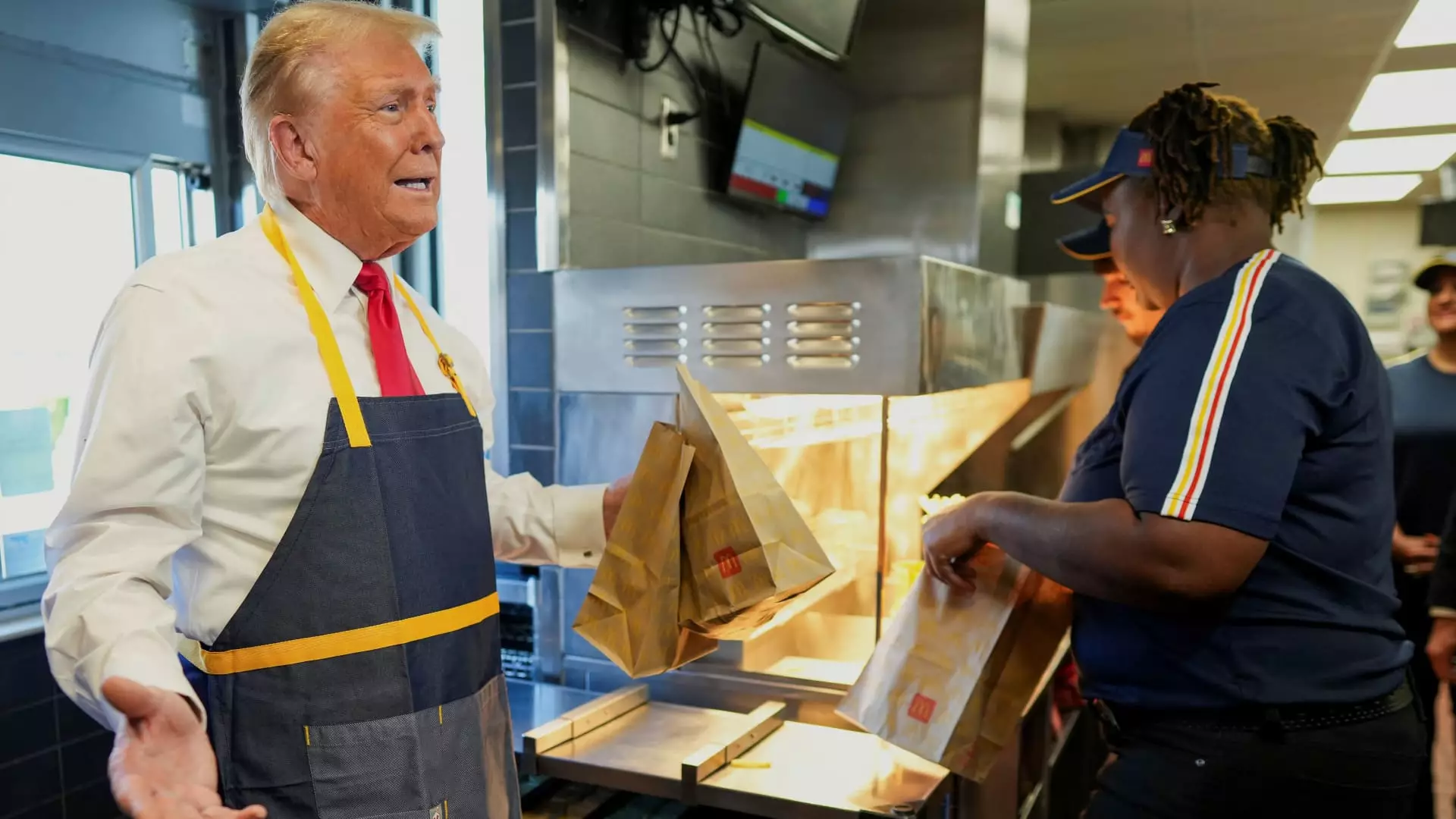In a rapidly evolving political climate, corporations are often faced with the daunting task of navigating the intertwined worlds of consumer opinion and political engagement. Recently, former President Donald Trump’s visit to a McDonald’s establishment in Pennsylvania vividly highlighted these complexities. While Trump’s excursion—a demonstration of his working-class credentials—was merely meant to entertain and energize his base, it left McDonald’s in a precarious position, prompting the fast-food giant to reaffirm its stance of political neutrality. This incident not only underscores the challenges brands face in the political arena but also reflects contemporary sentiments regarding corporate involvement in societal issues.
McDonald’s echoed its position of non-endorsement in an internal message that resonated with many stakeholders. “McDonald’s does not endorse candidates for elected office,” declared the corporation, as officials sought to maintain a neutral facade amidst a whirlwind of political narratives. This sentiment suggests a strategic retreat from political arenas, mirroring a larger trend in Corporate America that increasingly favors neutrality over activism to avoid alienating diverse customer bases. While some businesses have embraced political advocacy, notably with the Black Lives Matter movement, the backlash of heightened polarization has prompted a reevaluation of such tactics.
In a recent Gallup-University of Bentley study, findings revealed that a shrinking 38% of U.S. adults believe corporations should take public stances on social issues, down from 48% the previous year. These trends pose questions about not just McDonald’s, but about the larger influence of corporate positions on public sentiment and consumer loyalty. There exists an inherent risk when brands venture into political comfort zones that they’ve not previously navigated.
Trump’s encounter with the fry cooker and drive-thru demonstrated a strategy to humanize his persona among everyday Americans, but it also served as a veiled attack on Vice President Kamala Harris, who has previously mentioned her own tenure at a McDonald’s. When Trump accused Harris of fabricating her claims about working at the fast-food chain, the tension between personal narratives and corporate ethos became palpably strained. McDonald’s, in this context, stood as an unwilling participant in a political circus.
Franchise owner Derek Giacomantonio defended the decision to accommodate Trump’s visit as a representation of a fundamental business principle: accessibility and inclusivity. “We proudly open our doors to everyone,” he emphasized, invoking a sense of community that contradicts the divisive political landscape. However, this raises ethical questions: Does such openness inadvertently endorse the political ideologies and actions of any individual who steps through their doors?
The monetary aspect of McDonald’s experience further complicates matters. In an economy grappling with inflated prices and rising costs, the fast-food giant found itself under scrutiny regarding its pricing strategies. Republican factions seized upon the context of McDonald’s menu prices amid election rhetoric to paint a narrative that correlates Biden’s economic policies with rising inflation. This manipulation of public sentiment reflects how even the most benign corporate entities can be entwined in partisan discourse.
In response, McDonald’s U.S. President Joe Erlinger attempted to clarify the firm’s pricing strategies, emphasizing transparency and factual communication. Such measures illustrate the need for corporations to engage proactively with their narratives, particularly in the face of potential backlash from politically motivated discussions.
Ultimately, McDonald’s efforts to hold the line on political endorsement while simultaneously managing the ramifications of its public presence exemplify a broader trend in corporate America. As the landscape shifts, brands are pressured to reevaluate their strategies—advocacy versus neutrality—and their implications for consumer relations. It remains to be seen how McDonald’s will navigate the choppy waters of political engagement without alienating its diverse customer base.
In this era of heightened political polarization, the question persists: Can companies thrive without succumbing to the pressures of public opinion? McDonald’s quest for balance serves as a microcosm of a much larger debate, as brands attempt to define their roles in a politically charged society.

Leave a Reply